Brain fog from COVID-19
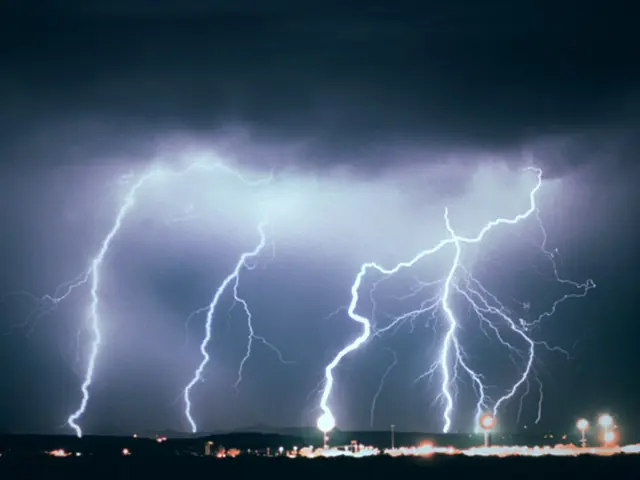
Brain fog is one of the most well-known sequelae of Long COVID.
Brain fog causes cognitive problems, mostly short-term memory disturbances, attention impairments and problems with concentration.
(Callan C et al.BMJ Open 2022, 12: e056366. 10.1136/bmjopen-2021-056366)
Although trials for treatment methods for brain fog have been carried out worldwide, effective methods have not yet been reported.
We decide to develop a new treatment method for brain fog

Because of this situation, we have started to develop an original treatment method for brain fog.
And then, with the grace of 3 breakthroughs described next, “two-by-four 8-channel Z-score neurofeedback treatment for brain fog” has been completed.
This is “world’s first” treatment method using neurofeedback technique for brain fog.
3 breakthroughs
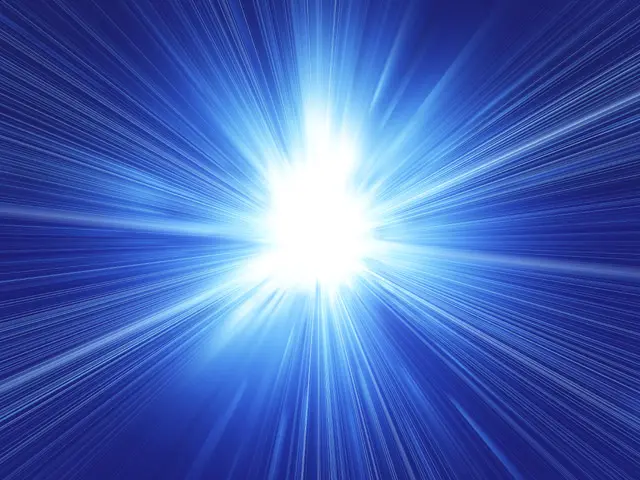
Neurofeedback
Neurofeedback is effective for several common disorders and symptoms including anxiety, depression, headaches, and pain.
(Tan G et al.Evidence-Based Practice in Biofeedback & Neurofeedback 3rd Edition. Association for Applied Psychophysiology and Biofeedback, Wheat Ridge, USA; 2016.)
Neurofeedback can also improve cognitive functions such as processing speed and executive functions including attention, planning, organization, problem solving, and performance.
(Angelakis E et al. Clin Neuropsychol. 2007, 21:110-29. 10.1080/13854040600744839)
Chemofog or Chemobrain
Furthermore, neurofeedback is effective for “chemofog” and “chemobrain,” which occur after chemotherapy and cause cognitive impairments in a similar manner to brain fog.
(Alvarez J et al. Integr Cancer Ther. 2013, 12:475-87. 10.1177/1534735413477192)
Based on these findings on “chemofog” and “chemobrain”, the efficacy of neurofeedback treatment for brain fog is highly promising.
However, there have been no reports of neurofeedback treatments for brain fog.
Therefore, we decided to adopt neurofeedback method to our original method.
Z-score
Single-channel neurofeedback is a standard treatment method that handles only one impaired site.
In the case of brain fog, multiple sites of the brain are assumed to be impaired, normal single-channel neurofeedback needs multiple time operations at once, and this takes a relatively long time.
This is a serious problem for clinical application.
Z-score neurofeedback is a treatment method that can handle up to 4 sites at one time.
Thus, Z-score neurofeedback is believed to be promising for the treatment of brain fog.
Furthermore, Z-score neurofeedback is simple and quick to learn, and it can be applied to many clinical disorders.
(Demos JN Getting Started with EEG Neurofeedback 2nd edition. Demos JN (ed): W. W. Norton & Company, New York, USA; 2019. 206-209)
Case presentation
After completing our original treatment method for brain fog using neurofeedback technique, we treated a patient who suffered from brain fog derived from COVID-19.
After 15 sessions, the patient has successfully recovered from brain fog.
Pain and psychological assessments also revealed that the patient’s pain improved, and that the patient recovered from anxiety.
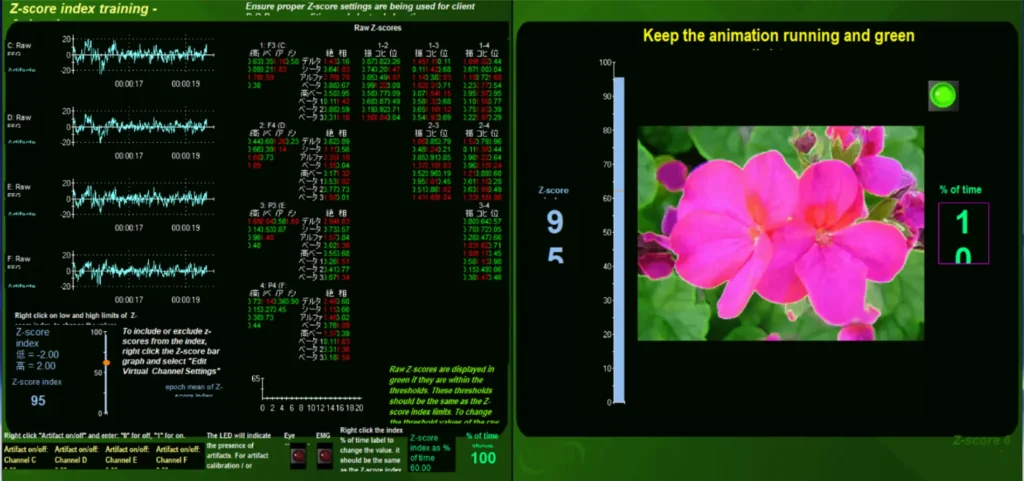
Screen of Z-score.
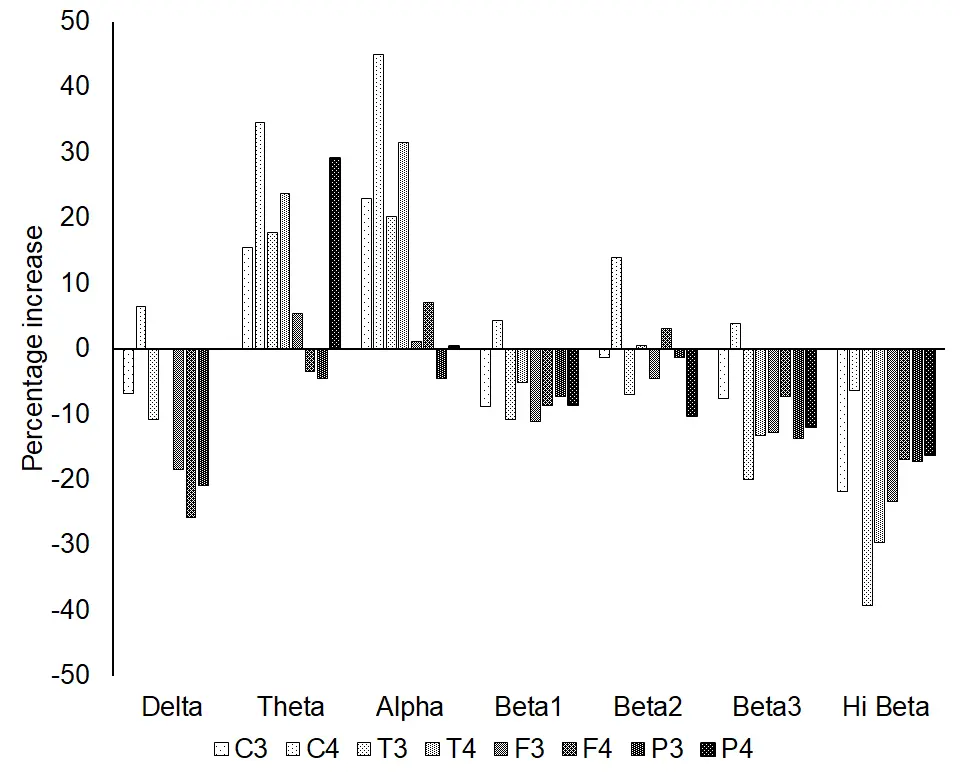
The percentage increase of each value at each wavelength at 8 sites.
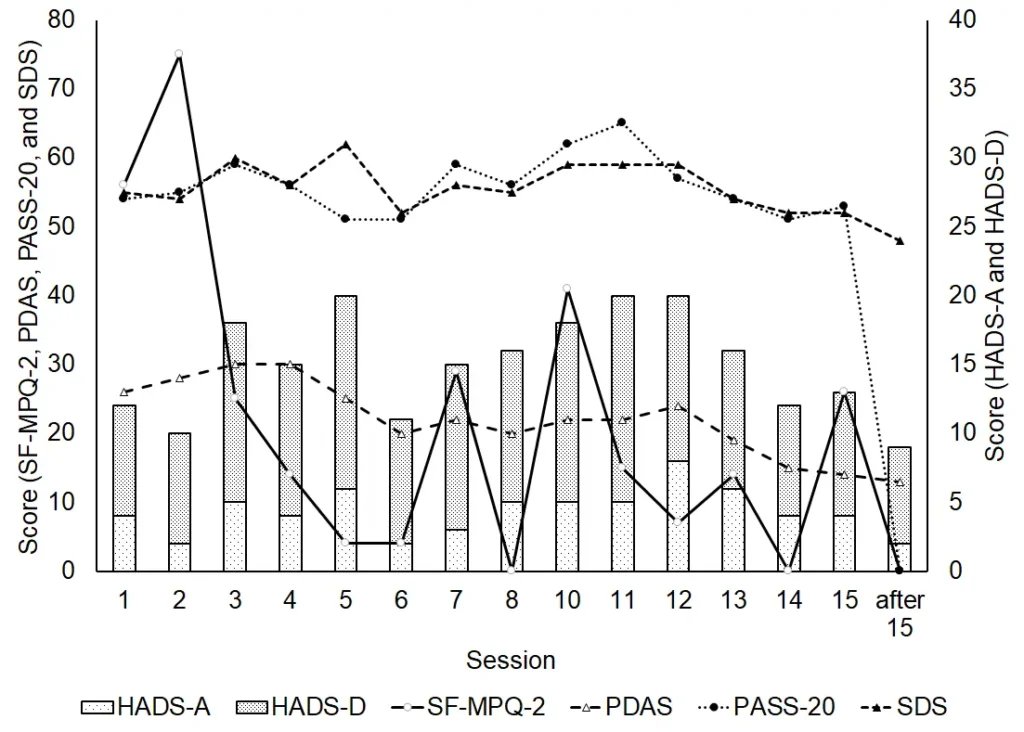
Pain and psychological measurements.
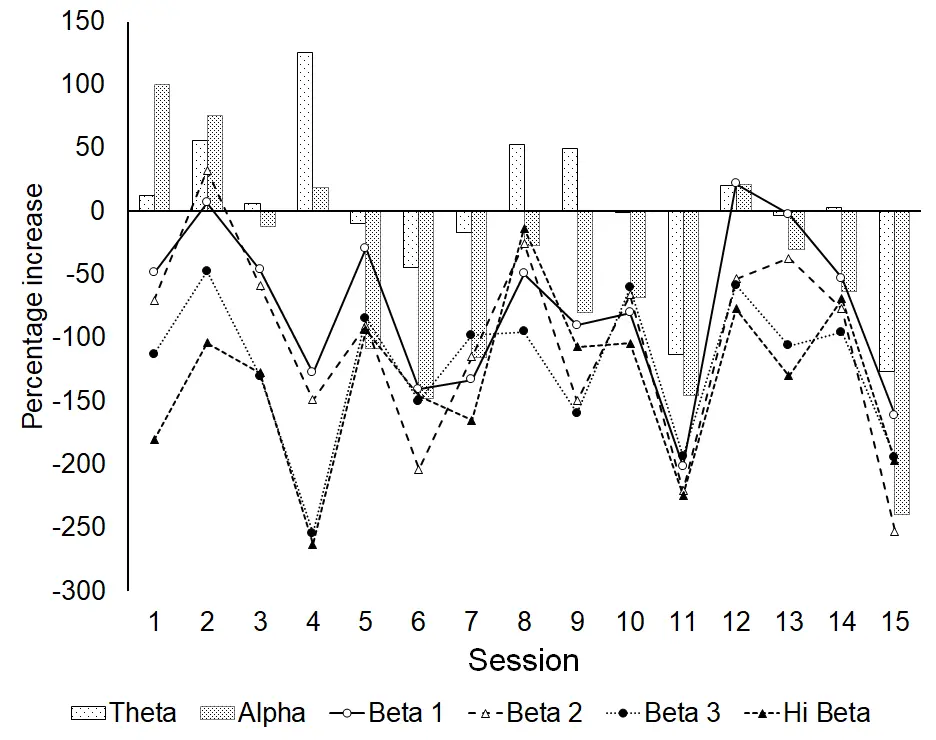
The percentage increase of total values within 8 sites at each wavelength.
Accept for Peer-reviewed journal
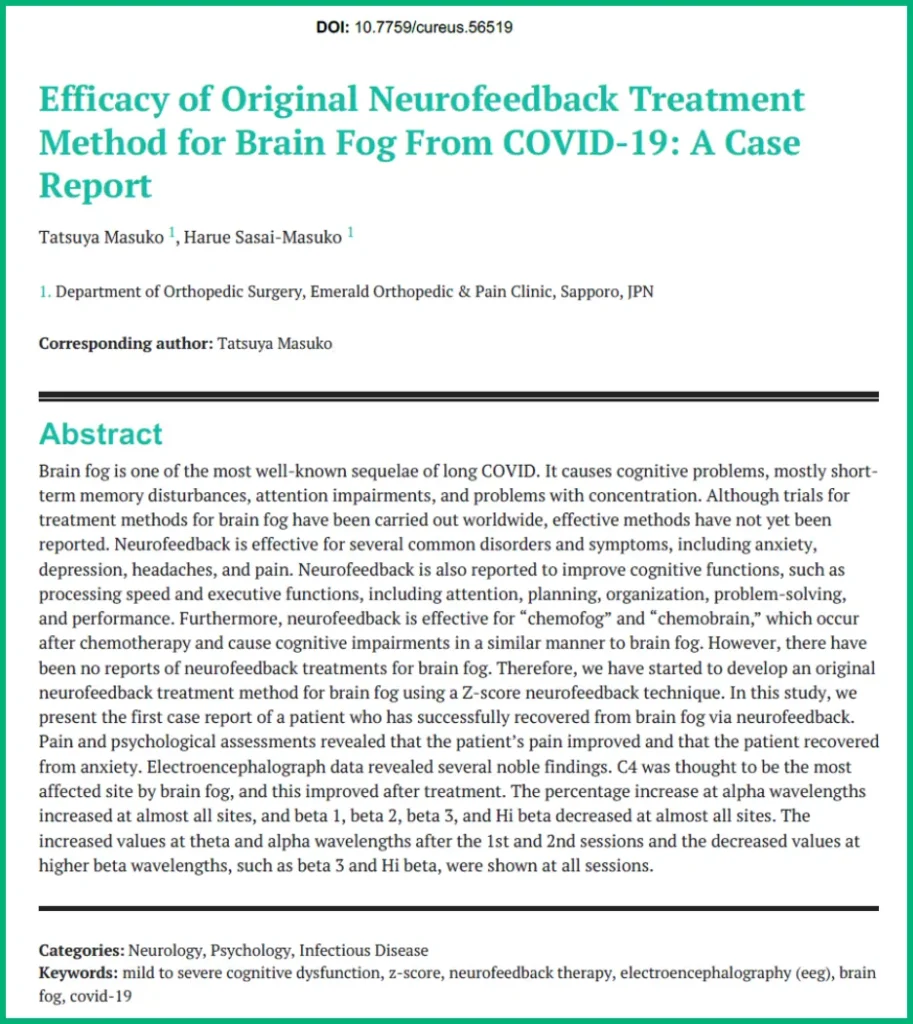
This case presentation was accepted to peer-reviewed journal in 2024.
(Masuko T and Sasai-Masuko H. Efficacy of Original Neurofeedback Treatment Method for Brain Fog From COVID-19: A Case Report. Cureus. 2024. 16(3): e56519. DOI 10.7759/cureus. 56519)
Detail of our original treatment method

-Only patients who suffered from brain fog derived from COVID-19
-$100 for each neurofeedback session (not insurance medical treatment)
-evaluate pain and psychological measurements
-evaluate the results of EEG
Procedures

- measure 8 sites
- 1st round: Z-score for 4 sites
- measure 8 sites
- 2nd round: Z-score for other 4 sites
- measure 8 sites
- explain the results from Director
- reserve next session

